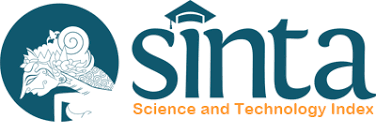The Relationship Between Maternal Knowledge Level And Feeding Practices With Dietary Patterns In Stunted Children
DOI:
https://doi.org/10.54209/jurnaleduhealth.v14i3.2762Keywords:
Stunting, Maternal Knowledge, Feeding Rules, DietAbstract
Introduction: Stunting in children becomes a problem as a result of several factors including the level of mother's knowledge, feeding rules, and eating patterns. Data from Basic Health Research (Riskesdas) for 2022, the stunting rate in Indonesia is 21.6% (Ministry of Health RI, 2022). While the target standard for the National Medium-Term Development Plan (RPJMN) is 19% in 2024. This study aims to analyze the relationship between the level of mother's knowledge and feeding rules with eating patterns in stunted children. Methods: This research employed a correlational study design and a cross-sectional approach. The sample consisted of 87 respondents selected using a simple random sampling technique. This study’s independent variables were maternal knowledge and feeding rules, and the dependent variable was dietary habits. The data was collected using a maternal knowledge level questionnaire, a fundamental feeding rules questionnaire, and a children’s feeding questionnaire (CFQ), which was subsequently analyzed using Spearman’s Rho with a significance level of α=0,05. Results: The bivariate analysis findings demonstrated a significant correlation between maternal knowledge and dietary habits patterns (p=0.000) (r=0.372). In addition, there was a significant correlation between feeding rules and dietary habits (p=0.000) (r=0.424). Conclusion: The level of maternal knowledge and feeding rules were related to children’s diet patterns. The level of maternal knowledge and feeding rules were factors associated with the dietary habits of stunted children; thus, increasing maternal knowledge and feeding rules would improve the diet patterns.
References
K. Suarayasa, I. P. K. Demak, E. Y. Bangkele, and Y. Minansal, “Pengaruh efektivitas Aplikasi M-Posyandu dalam deteksi dini masalah gizi pada balita di Kota Palu,” J. Impresi Indones., vol. 1, no. 2, pp. 57–65, 2022.
V. Viviana Putri Dewi, “Hubungan Pengetahuan Ibu Tentang Feeding Rules Dengan Pola Pemberian Makanan Pada Anak Pra Sekolah Di Desa Warukaranganyar Kecamatan Purwodadi Grobogan.” Universitas Kusuma Husada Surakarta, 2022.
C. Kurniawan, D. Sutiningsih, and M. Martini, “The Effectiveness of M-Kia Applications on Mothers Toddlers on Early Detection and Prevention of Pneumonia in Demak Regency,” J. World Sci., vol. 1, no. 9, pp. 706–724, 2022.
Y. A. Toulasik, “Hubungan Antara Dukungan Keluarga Dengan Kepatuhan Minum Obat Pada Penderita Hipertensi di RSUD Prof Dr. Wz. Johannes Kupang-NTT Penelitian Deskriptif Korelasional Pendekatan Cross Sectional.” Universitas Airlangga, 2019.
S. Amir, A. Apriorita, R. Baharuddin, and S. H. Putra, “Gambaran Pengetahuan Ibu Hamil tentang Perawatan Payudara Selama Kehamilan di Puskesmas Karang Rejo Tarakan,” J. Borneo, vol. 3, no. 1, pp. 1–8, 2023.
A. Ramdhani, H. Handayani, and A. Setiawan, “Hubungan Pengetahuan Ibu Dengan Kejadian Stunting,” in Prosiding Seminar Nasional LPPM UMP, 2021, vol. 2, pp. 28–35.
E. Novianti, D. L. Tobing, and B. Wibisono, “Upaya promotif dan preventif kesehatan jiwa melalui deteksi dini berbasis web,” J. Keperawatan Jiwa, vol. 8, no. 1, pp. 69–74, 2020.
I. Krisnana, R. Azizah, T. Kusumaningrum, and E. M. Marah Has, “Feeding Patterns of Children with Stunting Based on WHO (World Health Organization) Determinant Factors of Behaviours Approach.,” Indian J. Public Heal. Res. Dev., vol. 10, no. 8, 2019.
N. Chumairoh, “Gambaran Tingkat Pengetahuan Ibu tentang Feeding Rules pada Batita Gerakan Tutup Mulut (GTM),” CoMPHI J. Community Med. Public Heal. Indones. J., vol. 1, no. 3, pp. 148–154, 2021.
R. S. Ghinanda, M. Mauliza, and C. Khairunnisa, “Hubungan pola penerapan feeding rules dengan status gizi balita 6-24 bulan di Puskesmas Banda Sakti Kota Lhokseumawe,” J. Pendidik. Tambusai, vol. 6, no. 1, pp. 2583–2588, 2022.
K. A. Surijati, P. W. Hapsari, and W. L. Rubai, “Faktor-Faktor yang Mempengaruhi Pola Makan Siswa Sekolah Dasar di Kabupaten Banyumas,” Nutr. J. Pangan, Gizi, Kesehat., vol. 2, no. 1, pp. 95–100, 2021.
M. Sambo, F. Ciuantasari, and G. Maria, “Hubungan pola makan dengan status gizi pada anak usia prasekolah,” J. Ilm. Kesehat. Sandi Husada, vol. 9, no. 1, pp. 423–429, 2020.
R. Dwibarto, “Hubungan Antara Frekuensi Makan Dengan Status Gizi Balita,” Citra Delima Sci. J. Citra Int. Inst., vol. 7, no. 1, pp. 49–52, 2023.

















